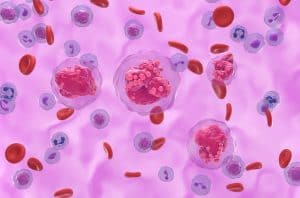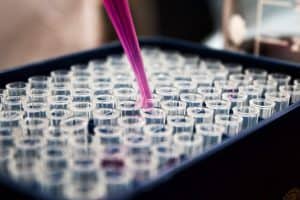Cause of rare childhood cancer discovered
pharmafile | July 31, 2014 | News story | Research and Development, Sales and Marketing | Cancer, RMS, YAP, childhood cancer
Scientists have made a breakthrough in understanding the cause of a rare childhood muscle cancer, called Rhabdomyosarcoma (RMS).
Around 60 and 350 new cases of RMS are diagnosed in the UK and Europe/US respectively, each year. Most RMS tumours occur in children younger than 10 years old.
A new collaborative study led by scientists from Harvard University and involving experts from the University of Aberdeen, The Institute of Cancer Research, London, and the Swiss Institute of Bioinformatics has revealed for the first time the key role a protein called Yap plays in triggering RMS.
The findings are published today in the journal Cancer Cell.This new discovery could lead to the development of improved therapies to treat the disease and other types of cancer in the future, according to the authors.
Dr Annie Tremblay, from Harvard University and part of the study, says: “RMS is a muscle cancer that can arise from any skeletal muscles in the body, although around 40% of the cases arise in the head and neck regions.
“The current therapies for RMS, although relatively efficient, are very aggressive and drastically alter the quality-of-life of the children who survive. Indeed, most of the survivors will suffer life-altering consequences such as loss of mobility or vision, growth impairment and developmental problems, or the need for life-long hormone replacement therapies.”
Dr Tremblay says they discovered that in cases of the disease, excessive activity of a protein called Yap causes muscle stem cells to permanently divide instead of stopping and becoming normal muscle tissue.
Findings from the study show that in instances of RMS cancer, the Yap protein remains active – like the accelerator of a car being stuck.
Researchers at the University of Aberdeen, the Swiss Institute of Bioinformatics and The Institute of Cancer Research (ICR) have also shown that Yap is actually ‘hyper-active’ in a large proportion of human RMS cases.
Dr Henning Wackerhage, from the University of Aberdeen’s Institute of Medical Sciences, says: “Our identification of the Yap protein’s crucial role in the development of Rhabdomyosarcoma is the first step on the road towards understanding how we can target this rare disease.
“Our work will now focus on how the Yap protein works in cancer and how its activity can be controlled.
“If we can achieve the inhibition of Yap locally in the tumours, we could cause the cancer to stop and regress by turning the RMS into normal muscle instead. This would most likely produce significantly less side effects than the current therapies.
“Other research has shown that Yap is active in several other types of cancer including liver and skin cancers. These results could therefore be of wider significance in also enhancing our global understanding of the role of Yap in cancer.”
Ben Adams
Related Content

OSE Immunotherapeutics and Boehringer Ingelheim collaborate on cancer and cardio-renal-metabolic disease treatments
OSE Immunotherapeutics and Boehringer Ingelheim have announced a major expansion of their existing partnership. The …

Nona Biosciences announced agreement with AstraZeneca for tumour targeted therapies
Nona Biosciences and AstraZeneca have announced that the two companies have entered into a license …

Geneos Therapeutics shares data from phase 1/2 trial for cancer vaccine
Geneos Therapeutics has announced that it has published positive safety, immunogenicity and efficacy data from …








